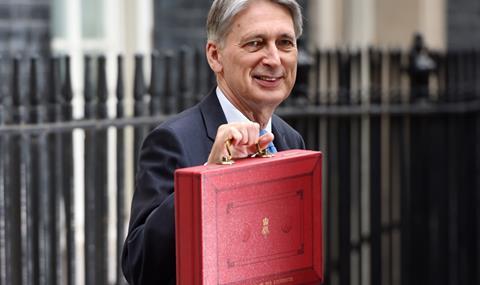
The chancellor has been criticised for not being bolder after he elected to freeze fuel duty in today’s Autumn Budget.
While Howard Cox and Quentin Willson from campaign group FairFuelUK were pleased the “chancellor has understood the debilitating effect of raising fuel duty on consumers, households, businesses and the broad economy” industry associations went on the attack.
Christopher Snelling, the FTA's head of national policy, said: “A freeze in fuel duty is a welcome decision, but it demonstrates a real lack of ambition by the chancellor.
“The cost of moving goods around the country and overseas determines the cost of doing business in Britain and the price of goods in our shops.
“At a time when British business is under extreme pressure to prove its credentials and reinforce existing trading relationships, Mr Hammond has missed an opportunity to cut these costs, and make the UK a more competitive place to do business,” he said.
RHA chief executive Richard Burnett was of the same mind. “At a time of Brexit uncertainty, the chancellor had the golden opportunity to make the production and distribution of UK goods more competitive.
“Fuel duty makes the UK less competitive - we have the highest fuel duty in Europe -nearly 50% higher than the European average. And despite the seven-year freeze, at 57.95ppl, fuel duty remains grossly excessive. It has a negative effect on everything we buy and makes all UK made goods more expensive to transport,” Burnett said.
While the FTA had called for a 3ppl cut to fuel duty, the RHA has been pushing for an essential users rebate, as adopted in eight EU member states, including Ireland and France.
Matt Dyer, MD at LeasePlan UK, added: “We’re glad that the chancellor has listened to motorists and the fleet industry, and decided to extend the freeze on fuel duty for another year. However, even with a freeze, fuel prices are still rising. If this continues, the Chancellor should consider cutting Duty rates for the first time since 2011.”
It came as the UK’s GDP was revised down in the Budget – signalling three years of a shrinking economy as Brexit begins to weigh on it. GDP next year will be 1.4%, falling to 1.3% in 2019 and 2020. It should come in at 1.5% this year (down from 2% forecast at the March budget).
Employment is expected to continue to climb though from 32.1 million by the year’s end to 32.7 million by 2022, although UK productivity growth was also trimmed.
Taxation on older diesel vehicles is increasing too, although the chancellor said this would be private cars and would not affect commercial vehicles.











